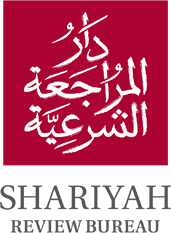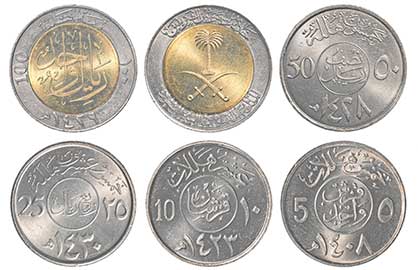Imam Ibn Taymiyyah (d. 728 H) states that the physical body of money is never the objective of acquiring money, rather, it is the counter-exchange which is the objective and benefit of money. Although money plays the role of a medium of exchange and a standard of measurement, profit by exchange is permitted as long as it is in accordance with the Shariah principles as the AAOIFI Sharia Standard No,1 states:
“It is permissible to trade in currencies, provided that it is done in compliance with Shariah rules and precepts.”
According to some jurists, fiat currency is regarded as a replacement for gold and silver. Thereby, a fiat currency itself attracts the characteristics of the respective precious metal. The currency of any given country is seen as if it were the gold it once was based on. As a result, the laws of trading gold and silver apply to fiat currencies in an identical manner. Another opinion argues that fiat currencies hold the same legal position as Fulus (copper money) in classical legal thought. Historically, Fals (single unit of copper money) used to be a locally restricted currency for small transactions. This view is supported by the fact that fiat currencies share a feature of Fulus in that they are not weighed nor measured in volume but counted. Gold and silver are weighed. Like copper money, fiat currencies are a standard for prices. Furthermore, its value changes like that of copper coins did. This is due to the fact that the face value of fiat currencies exceeds the intrinsic value. A third opinion suggests that fiat currencies are an independent type of money. They can be seen as one thaman among many. In this conception, different currencies as well as gold, silver, and Fulus are regarded as different types of money.
Types of Forex Trading
In describing Forex, the paper looks at what Forex is and how trades are made in this industry. Forex is the shortening of foreign exchange, sometimes referred to as FX or currency trading. Forex trading is the simultaneous buying of one currency and selling another. Currencies are traded through a broker or dealer and are traded in pairs. There are multiple ways to trade Forex. One method is Contract for Differences. This method is predominantly offered by brokers for individual investors in the retail market for speculation. No real currency is bought or sold in the retail market. CFD Forex trading is not Shariah compliant due to incorporating Gharar, an invalid commodity in Shariah and Qimar.
Another method is FX Futures. This method is offered by brokers for individual investors in the retail market for speculation. Futures contracts are also traded among other FX market participants. Currency futures, also called forex futures or foreign exchange futures, are exchange-traded futures contracts to buy or sell a specified amount of a particular currency at a set price and date in the future. A currency futures contract is a contract to buy or sell currency at a specific price on a future date. In futures transactions, because neither counter-value, is present at the time of contract, it is a mere exchange of promises. Futures trading, where both counter-values are deferred, is exchange of one debt for another, i.e., bay’ al-kali bil kali (a sale of two deferred counter-exchanges). The deferral of both counter-currencies results in a deferred transaction
Spread betting is a derivative product. With a spread bet you don’t actually own the asset (such as a commodity, currency or share) that you’re speculating on. Instead, you trade on margin. With spread betting, you don’t buy or sell the underlying asset (for example a physical share or commodity). Instead you place a bet based on whether you expect the price of a product to go up or down in value. Similar to CFDs, spread betting is essential a Qimar (gambling) transaction and is non-Shariah compliant. One opens a position and takes a view on the movement of the currency pair. The key difference between this and share trading is that in shares, one actually purchases the shareholding. The price paid is converted into shareholding for which one bears the risk. In a spread bet, the amount paid is for merely opening a position. The amount is not converted into ownership of any shariah compliant commodity. Therefore, it is purely the staking of wealth for speculative purposes.
Another method to trade forex is FX options. A currency option is a type of foreign exchange derivative contract that confers to its holder the right, but not the obligation, to engage in a forex transaction. In general, buying such an option will allow a trader or hedger to elect to purchase one currency against another in a specified amount by or on a specified date for an upfront cost. This right is granted by the option’s seller in exchange for an upfront cost known as the option’s premium
Options is prohibited because it is a form of bay’ al-Gharar. The exercising of the option is unknown and uncertain. The uncertainty in the subject matter makes it Gharar. Another reason for the prohibition of options is the non-compliance of the subject matter of sale with Shariah.
Shariah perspective
In conclusion, speculative and retail spot forex does not include any purchase or sale of real currency. Just like CFDs and spread betting, retail spot FX is essentially a Qimar (gambling) transaction and is non-Shariah compliant. One opens a position and takes a view on the movement of the currency pair. The amount is not converted into ownership of any shariah compliant commodity or currency. Therefore, it is purely the staking of wealth for speculative purposes. This is coupled with Gharar (uncertainty) as the outcome of this transaction is totally unknown and suspended on chance. Furthermore, one’s margin account receives interest payments for holding overnight positions. This income is impure and non-Shariah compliant.



